#nomadlife
Explore tagged Tumblr posts
Text
The Date Game: Olympic Sport or Minefield?
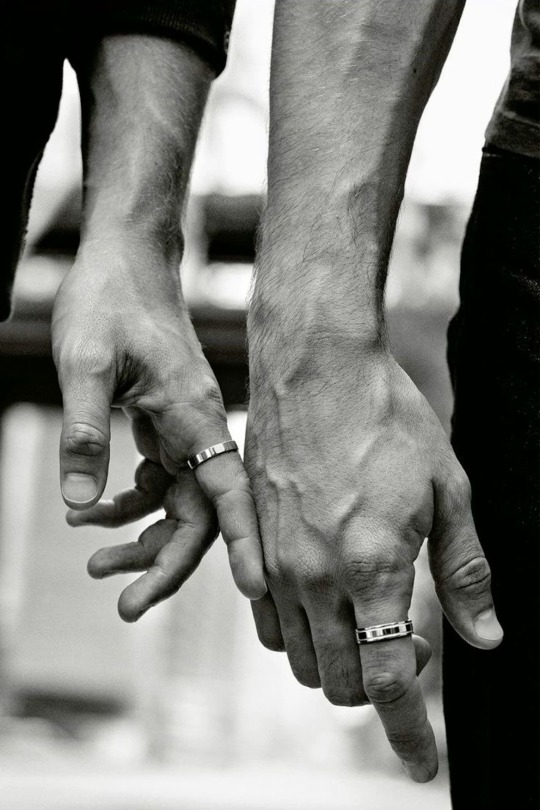
Dating, darling, is it an art or a game? And if it's a game, shouldn't it be an Olympic sport? Just picture it: all the guys I've dated, competing for the gold medal in... well, we'll get to that. But first, let's talk about the rules (or lack thereof).
Every game has rules, right? They make things more fun, more challenging, and help you understand the goal. But dating, my sweet summer children, has ZERO rules. It's like being dropped in the middle of the ocean with a blindfold and a paddleboard.
I have yet to receive a rulebook for the GAME, the game of love. (Is that even what we're playing?)
I don't know about you, but I don't think people go on dates to find love. In my experience, it's more about finding someone who isn't a total nutjob, a psycho, or a cheater (that last one is harder to spot than a fake Rolex).
Gay dating, in particular, is two guys trying to out-impress each other with the same, tired lies. During the date, everyone's Mr. Perfect: zero baggage, amazing exes, no drug problems, mental health? Aced it! Workaholic, but with a heart of gold. It all sounds too good to be true... and honey, it usually is.
Social media is partly to blame. We're all curating our "perfect" lives online, and some people are taking that facade offline. I've met guys who are living their Instagram fantasy IRL, and let me tell you, it's exhausting.
But that's not even the worst part. The thing that really gets me is that dating feels like a never-ending job interview. Think about it:
I apply for the job: Based on my carefully curated profile pics and witty bio.
I'm randomly selected for an interview: If my pics are cute enough and my bio doesn't sound like a serial killer's manifesto.
I go to the interview: AKA the date, where I put on my best performance and hope they don't notice I'm wearing Spanx.
Now, here's where it gets different: If I don't get the job, I'm still open to a little "consolation prize" (if you catch my drift). In the real world, you don't sleep with your HR manager after a failed interview. But in the dating game? Anything goes.
So yes, I downloaded Tinder, took some flattering selfies, and crafted a bio that would make Shakespeare jealous. And you know what? It's been... interesting. Expect a full report in my next post, including tales of awkward Grindr encounters, unexpected hookups, and maybe even a happy ending (or two).
Ps. We're in 2024—can we normalize sex on the first date (or soon after)? Why is this still taboo? Sex is important in any relationship, romantic or otherwise, and it's weird that we don't talk about it more openly. Let's be real, we need to talk about sex, learn about it, and teach it without shame or judgment. This starts with looking inward and seeing our lives (and desires) with fresh eyes. Sex isn't dirty or ugly; it's a natural form of energy and connection. I want to know if the person I'm dating matches my energy in all ways, including sexually.
Stay tuned, my loves! And remember, always swipe right for yourself first.
Cheers,
Caesar
#GayBestFriend#UrbanJungle#SelfDiscovery#WineAndAstrology#GymLife#YogaAndMeditation#SelfCare#HonestBlogging#LifeAdventures#RawStories#Entrepreneur#NomadLife#Aquarius#Scorpio#TarotReader#GreekBlood#sohotandsexy#angel#digitaldiary#gaymen#archangel#gayman#god#gaypride#gayhot#gayboy#gayart#blog#gay#quote
49 notes
·
View notes
Text






#india#jammuandkashmir#nature#bhadarwah#autumn#unexplored#nature photography#forest#trees#november#nomadlife#wildflowers#halloween#ghost#Photography
26 notes
·
View notes
Text
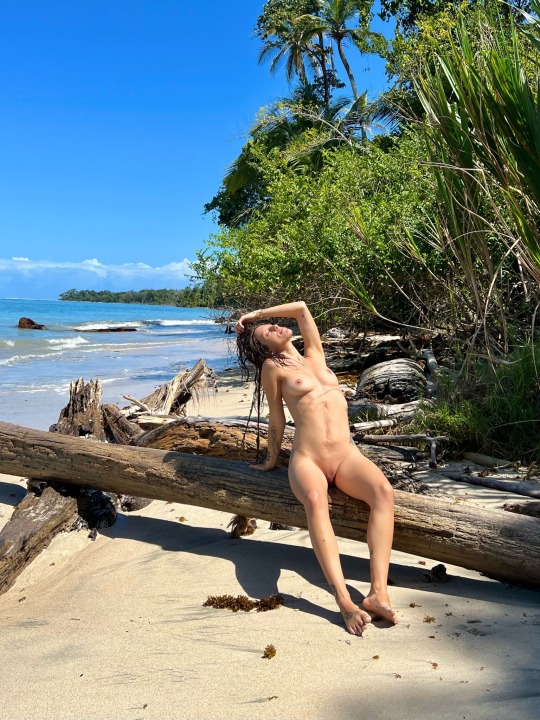
Tropical vibes
216 notes
·
View notes
Text
Off Grid Vlog
youtube
#youtube#offgrid#off grid#homestead#homesteading#daily vlog#vlogger#tiktok#nature#natural#camping#rv life#full time rv#digital nomad#nomad#nomadlife
11 notes
·
View notes
Text

It’s the Freedom of Choice…
‘Home Sweet Home’ is wherever you park it.
7 notes
·
View notes
Text

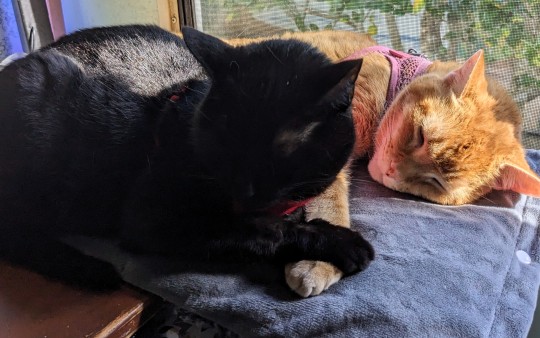
ten years together♥️♥️♥️
18 notes
·
View notes
Text
My life is so different now. I cannot thank myself enough. #nomad #travel #selfcare
5 notes
·
View notes
Text
unmoored
Voyaging belongs to seamen, and to the wanderers of the world who cannot, or will not, fit in. If you are contemplating a voyage and you have the means, abandon the venture until your fortunes change. Only then will you know what the sea is all about.
Sterling Hayden, from Wanderer (1963)
I sense the weather as I wake, even before I open my eyes.
The hull is still, save for a faint, gravitational shift of tension starboard, between it and the wooden pontoon to which it’s tethered. A shift of tide, not wind. The only sound is my wife’s breathing as she sleeps.
The air in the cabin is cold for a summer morning. The moisture in it has substance; you can almost swill it around your mouth. There’s a thin taste of salt, diesel and wood.
Fog.
I open my eyes to peer through a perspex hatch above my head. Sky the colour of stale milk has fallen across it. I sit up, wrap my duvet around my shoulders, and check the small, brass-encased barometer and clock on the bulkhead above the foot of my bunk. 6.30am: four hours before high water.
In an hour, my wife and I will warp our old sloop from its berth and sail a mile or so north-west across the Tamar estuary on the flood to thread a narrow channel edged by mudflats, at the mouth of a nearby tributary, St. John’s River, to reach a ramshackle boatyard where our boat is to be lifted ashore for repairs.
Fog and unfamiliar waters will make what might have been a careless twenty-minute transit more testing. Up-river are commercial wharves and a naval dockyard. Large ships and ferries ply the buoyed, deep-water fairway in the middle of the river, heedless of small boats like ours — mere pin-pricks, if seen at all, on their radar screens. In such poor visibility, the percussive thud thud of heavy diesels will be the only hint we get of their proximity and course.
Our boat has no radar. No GPS either. The VHF radio has seen better days. Wrack is an impoverished vessel, sea-worn and ill-equipped, almost half a century old, but capable enough under sail. With a fair breeze today, we can make do with a salt-stiffened mainsail, steering compass, and a rough plan of soundings with a small section of shoreline that I’ve traced in pencil from a large-scale chart on the harbourmaster’s office wall.
We moved aboard four months ago, at the beginning of what turned out to be a cold, wet spring. The boat was berthed on a listing pontoon, on the lower reaches of another river, the Itchen, 150 sea miles east of where we are now, alongside a bank of coal black mud that dried at low water and smelled of rotting seaweed and industrial waste. The capricious eddies of a semidiurnal ebb and flow tugged at the keel. Mooring lines creaked as they strained against their cleats.
It took a while to get used to the constant movement of the boat and the noises the river — and the relentless equinoctial wind — drew from its hull and rigging, but they were the least of other things we had to get used to: cooking in a tiny galley, pumping waste from the toilet by hand, even moving back and forth in the narrow cabin or outside, along rope-strewn decks. I had spent my youth living and working on the water but that was nearly half a century ago; my wife had grown up in the rural north of Oklahoma, far from any sea. I’m not sure what we expected but our first month aboard was an unsettling hardship. The cabin was gelid and condensation dripped from the deckhead, portlights and hatches. Brown water puddled at the bottom of every shelf and locker. Mildew and mould were everywhere.
Yet the boat was a refuge. We had wandered in search of somewhere to settle — or, more precisely, somewhere we would be allowed to settle — for four years, moving between whatever cheap, temporary accommodation we could borrow or afford to rent in seven countries, until this unkempt but graceful vessel suggested a possibility of shelter, of ‘fixedness’, even as we were compelled by circumstances to remain mobile, unrooted. We saw it — no, not her — as a floating vardo, spartan but functional, and by the time we slipped our lines from the pontoon and headed downriver, with a spring ebb hurrying us towards the open sea, where we would turn westwards, still uncertain of a precise destination, we had accepted the idea of ourselves as waterborne Gypsies, seafarers not yachtsmen, finally cut adrift from a shore that, we felt, no longer had a place for us.
We reach the edge of the ship channel as the sun rises above the low hills inland. A light northerly and the press of a strong spring flood againt the leeward bow fills the mainsail just enough for a slight wake to trail aft from the transom. By the time we’re reach the other side of the estuary, the fog has begun to dissipate but we’re still taken by surprise when a pair of large tugs, steaming seawards in company, materialises suddenly, as if out of thin air, and crosses our track close astern.
My wife and I stand together in the cockpit and peer forward under the boom, hoping to spot small, plastic, red and green buoys that will guide our course towards the boatyard. I study my hand-wrought chart and try to make it fit with the few features we can see: a pub, a car park, jittery water over shoals that fringe the low-lying shore.
Within a few minutes, we are picking our way across those same shoals. My wife calls out readings from an electronic depth-sounder, none of them reassuring. Our keel is close enough to the river bottom that I can feel a swirl of turbulence around it through the rudder. Two hundred metres off the port bow, through haze, I make out the rusted steel hulks of two river freighters, aground on the mud; they suggest a makeshift breakwater. Several metres to starboard, another improvised breakwater: the large, weather-worn wreck of a wooden fishing boat, its seams swollen and seeping rust, also aground and listing precariously against a high concrete quay. I assume the entrance is somewhere in between. My chart, such as it is, ends at these motley barriers.
We douse our sails and start the engine; with the throttle in neutral, we let the tide carry us closer over the murky shallows. There’s a volley of small arms fire. Then an explosion.
“I’ve seen this movie,” my wife says.
When I was a boy I dreamed of pirate utopias.
They were everywhere in the 17th and 18th centuries, refuges for outlaws and dissolute outsiders. From the island of Madagascar, the renegade captains Henry Every and William Kidd preyed on Arab traders and ships of the East India Companies off the coasts of East Africa and southern India; there were corsair strongholds in the Mediterranean — Ghar al Milh in Tunisia and Algiers — and the Muslim pirate Republic of Salé on the Atlantic coast of Morocco; there were a score of well-known Caribbean refuges, among them Port Royal, a British buccaneer sanctuary on the Jamaican coast, Tortuga on the French-held island of Haiti, and New Providence in the Bahamas, the last an uninhabited island until it was claimed by an English privateer-turned-pirate Henry Jennings and became the hideout of a pirate admiral, Benjamin Hornigold, and later the infamous ‘Blackbeard’, Edward Teach.
These were rough, anarchic places, their shores often defended by ramparts arrayed with cannons, behind which lay improvised settlements of victuallers, armourers, shipwrights, canvasmakers, boarding houses, bars, brothels, illicit traders, ‘fences’, and slavers, all in service to the pirate fleet and its crews. During fair weather seasons, the anchorages would swell to become water-bound townships themselves, with ships of all sizes, many of the captured ‘prizes’, lying in close proximity to each other, a steady traffic of oared lighters and cutters navigating the narrow waters between them.
I was forty-two years old when I came across a copy of Peter Lamborn Wilson’s 1995 book, Pirate Utopias: Moorish Corsairs and European Renegadoes, which connected, obliquely, Wilson’s somewhat idealised take on these unruly havens to his by-then-notorious notion of Temporary Autonomous Zones. First published in 1991 under the pseudonym Hakim Bey, just two years after Timothy Berners-Lee invented the World Wide Web, Lamborn’s book, T.A.Z.: The Temporary Autonomous Zone, described a “socio-political tactic of creating temporary spaces that elude formal structures of control”. It also suggested real and virtual ‘territory’ within which anarchic concepts of unrestricted freedom, beyond the reach of government, might be explored. Similar ideas, sparsely defined, in relation to sea-borne communities, had inspired me as a young man, when I first slipped away from a privileged, if peripatetic, upbringing to live alone aboard a tiny sailing boat.
If my younger self had been pressed to describe what a 21st century ‘pirate utopia’ might look like, he might have come up with the ramshackle, almost dystopian seascape that we are entering, tentatively, on a sluggish flood.
Astern of the rotting wooden trawler on the starboard edge of the entrance, a small, former naval ship of some sort with high freeboard lists against the quay, thin water barely covering its propellors, while to port, a row of aged, fibreglass sailboats are berthed along a rickety pontoon secured to the corroded river freighters-turned-breakwaters; the sailboats’ keels are sunk in a glutinous shoal that, we later find out, is submerged just twice a day, for two hours either side of high water. As we drift deeper within, we pass iron-hulled narrowboats in various states of disrepair, rafted together, but disconcertingly out of place on these tidal flats, far from any canal — two young women in long floral dresses atop one of them, sipping from colorful mugs, which they raise to greet us.
Every boat looks lived in, every deck strewn with jerry cans, pot plants, and mildewed canvaswork, coachtops and rigging draped with laundry and improvised awnings. The effect is of a shanty town, a floating favela thrown together by the vagaries of wind and tide, as if the disparate vessels were caught by the tendrils of a slow-moving gyre that eventually stranded them here, in this shallow rural backwater.
A once graceful, large motor-launch, its wooden superstructure gone to seed and patched with random off-cuts of marine ply and sheets of clear plastic, marks the end of the entrance channel. We turn ninety degrees to port into a rectangular pool of oily, brown water enclosed by cement quays and wooden pontoons. Arrayed along the quays, a handful of buildings, some more permanent than others, in stone, timber, and corrugated metal.
We steer towards a slipway; at the bottom of it, lapped by the rising tide, is a insect-like steel structure, a U-shaped gantry on wheels, from which are suspended a set of canvas slings. Men are perched atop the steel beams above the slings which, as we approach, are lowered and the whole structure moves further down the ramp, into the water. We kill the engine; there is just enough way on to drift the boat into its skeletal maw. The slings are raised, slowly, either side of the keel. The hull ceases to respond to the movement of the water. The deck becomes solid underfoot. Then, like some arcane Victorian mechanical stage effect, the boat begins to rise from the sea into the air.
More volleys of gunfire and the muffled thud of an explosion. A whisp of pale smoke rises above a line of trees on the other side of the harbour. Someone shouts a series of indistinct instructions.
“Bloody commandos,” a young woman says. She stands at a counter at one end of a somewhat chaotic kitchen in a small, open plan shed that serves as the harbour’s canteen.
“Training,” says an old man with arthritic hands and rheumy eyes, sitting alone at one of the few tables. Ex-military himself, the small sailboat he has lived aboard, alone, for six years is berthed just a hundred yards from the grassy foreshore that is the staging ground for a series of practice assaults by armed soldiers aboard rubber boats. He has retreated to the café to get away from the noise and for company.
There are three other customers, besides the old man, my wife and me. One is a former marine in his fifties who was discharged with post-traumatic stress and found insulation from his past and a necessary solitude aboard a different boats over the past decade. The others are a gangly, middle-aged South African guy who does freelance maintenance and refitting for the local yard, and a transexual English shipwright with Barbie-esque hips and bust but large, gnarled hands and a waterman’s weathern-worn face. All live aboard boats here and like the old man, come to the café as much for random social encounters as for food.
Everyone converses with each other easily: there is commonality in our lives afloat. But there is also the impression that we are all untethered and adrift. The lack of individual fixedness (that word, again) is stark. We talk of boats, sea passages and ports of call but there is no sense of place, of belonging. None of us have a home in our heads to return to — maybe this last defines the elemental difference between recreational sailors and sea-dwellers, between the guests of high-priced marinas and the liveaboard outsiders moored here and elsewhere in the obscure reaches of other estuaries and tidal creeks around the British coast — but very few of us have been pressed into this circumstance. It is a choice, or sometimes a lawless inclination, driven only in part by a desire to feel free of some of the strictures and conventions of life ashore.
Disappearance is an art and those drawn to a life on the sea are adept at it. Community among seafarers is temporary and non-committal at best. Even here, among a fleet of decrepit boats that rarely put to sea, the comings and goings of individual liveaboards — some of whom crew other people’s boats for a living — are like hauntings. For all the 20th century theorizing about pirate utopias and temporary autonomous zones — the former focussed on the consensus and lack of hierarchy at the heart of piratical decision-making (and a lack of tolerance for autocratic captains) — and the history of rigid command structurea and iron discipline imposed over centuries on sailing ships’ crews at sea, most seafarers are now, as in the past, introspective proto-anarchists, resolutely solitary, who, when ashore, might be mistaken for ghosts.
At sunset, the quayside is empty. The boatyard’s tradesmen and office staff have retreated to their homes and whatever awaits them there. A few, dim lights can be glimpsed through portholes or perspex hatches but few people. The light winds in the estuary have dissipated and the air has begun to cool. The tide is at its lowest ebb — in the harbour, now empty of saltwater , the keel of every vessel has been swallowed by an expanse of grim sludge
Standing on a short jetty, my wife chats with a much younger woman who is taking in bed linen left to dry along the boom of a small, gaff-rigged, wooden sailboat.
“How long’re you around for?” she asks my wife.
“Until the boat’s done,” my wife says.
“And then?”
We both shrug, not knowing.
First published in Dark Ocean, an anthology from The Dark Mountain Project, UK, 2024.
#sea#memoir#nomadlife#livingaboard#seafaring#seanomads#seasteading#englishchannel#boatcommunity#england
6 notes
·
View notes
Text
Do you have any travel plans recently?
In this fast-changing world, life always brings us new experiences and challenges. Every trip is a spiritual baptism that allows me to rediscover the meaning of life.
Traveling not only allows me to see different cultures and scenery, but also makes me understand the importance of cherishing the present. Whether strolling in the charming streets or enjoying the local food, every moment is full of surprises and touches.

2 notes
·
View notes
Text
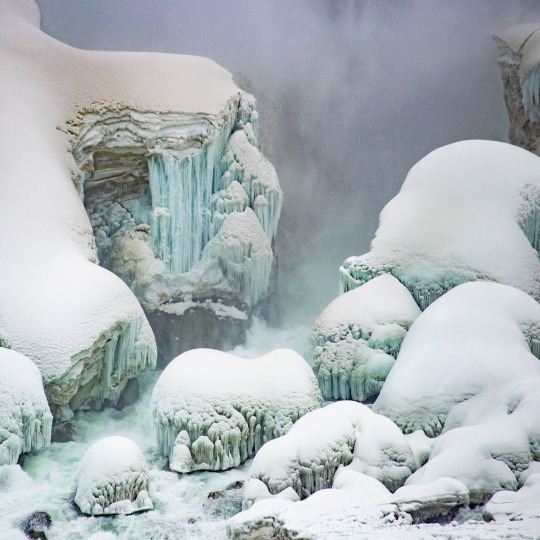
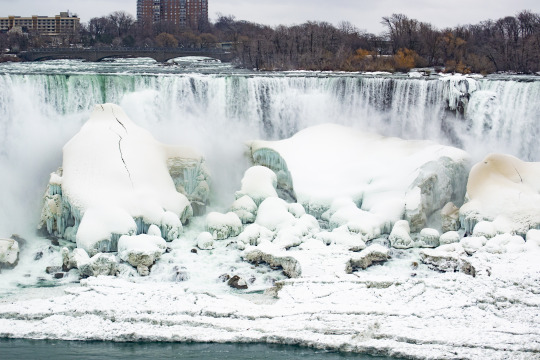
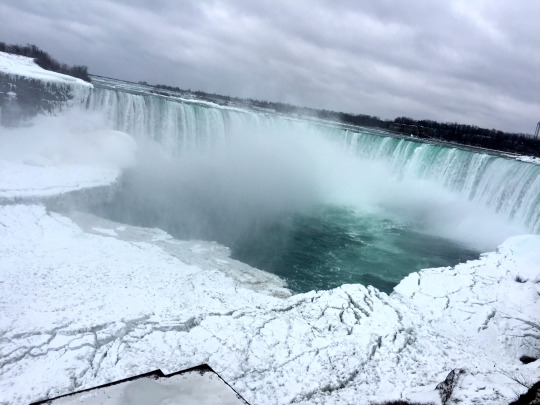
Some shots of the ice around Niagara Falls when I was visiting Toronto. Only a very small portion of the water was unfrozen, despite all the water movement. I imagine the water underneath the ice sheets must be churning and moving quite fast.
#canada#travelcanada#travel#travelphotography#travelgram#travellover#travelling#travels#travellers#wanderlust#photographer#girltravel#girltraveller#womentravel#digitalnomadlife#digitalnomadlifestyle#digitalnomads#digitalnomadgirls#nomad#nomadlife#travellingphotography#nomadstories ⠀
6 notes
·
View notes
Text
Who am I?

Hey there, I'm Caesar.
Think of me as your gay best friend navigating the urban jungle, one cosmopolitan at a time. I'm 37, single, and yes, I love sex—the good, the bad, and the occasionally awkward.
Wine, astrology, and self-discovery fuel my soul. You'll find me hitting the gym, then unwinding with yoga and meditation (or maybe some weed and documentaries). Self-care is my religion.
I've been through my share of ups and downs—insecurity, anxiety, even PTSD—and I'm not afraid to share the messy parts. Life isn't always parties and perfect dates, and that's okay.
Besides being a writer, I'm also an entrepreneur and a nomad. I'm an Aquarius with a Scorpio rising, and I read tarot cards. Oh, and I have Greek blood running through my veins!
This blog is my journal, a space to spill the tea on my adventures (and misadventures). Expect raw honesty, a touch of humor, and plenty of stories that'll make you cringe, laugh, and maybe even feel a little less alone.
So grab a drink, get cozy, and join me for the ride.
And remember, always fall in love with yourself first.
Cheers, Caesar
#WhoAmI#GayBestFriend#UrbanJungle#SelfDiscovery#WineAndAstrology#GymLife#YogaAndMeditation#SelfCare#HonestBlogging#LifeAdventures#RawStories#Entrepreneur#NomadLife#Aquarius#Scorpio#TarotReader#GreekBlood#sohotandsexy#angel#digitaldiary#gaymen#archangel#gayman#god#gaypride#gayhot#gayboy#gayart
15 notes
·
View notes
Text
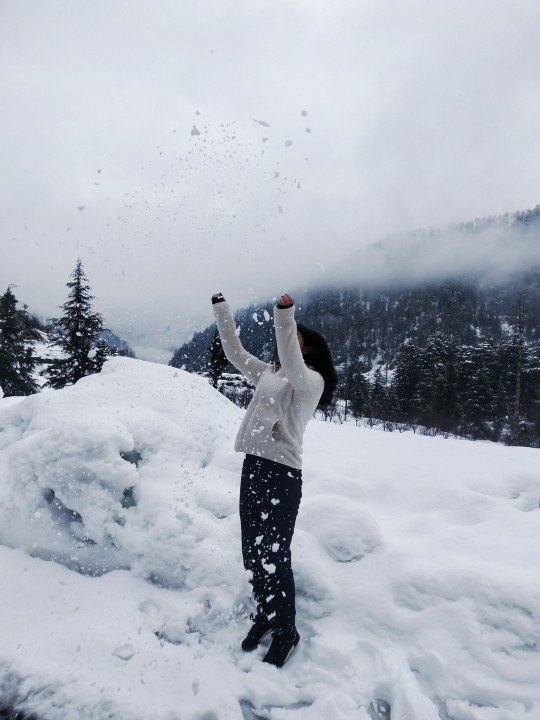
#india#bhadarwah#jammuandkashmir#unexplored#nature#my photography#himalayas#naturephotography#nomadlife#wintersinhimalayas#winter#february#snow#snowfall
23 notes
·
View notes
Text

The more I travel, the more it opens my mind and my heart to everything and everyone around me
There is a precious gift in moving through the world and all of its unfamiliar and wonderful ways
It is a gift of perception, a gift of your inner world changing as the outside world shifts around you
Your perception of what you know based on the experiences you’ve had from within your home country changes…
It shifts to a deeper understanding of humanity and the wildness of the earth, an understanding that roots deeply within your heart and dissolves judgement on the ways of life that go against your own beliefs.
Compassion makes a home in your heart for all life, all across the earth, everywhere you go.
When you move between such different worlds you realise how connected it all is, how connected WE are to the natural world, how culture is a way of life so unfamiliar to our own ways but so essential in preserving the rituals and survival of communities across the world and in the keeping of life continuing to thrive.
In my experience, every time I have chosen to travel, life presents me with the opportunity to expand in ways I never expected to, and gifts me beautiful experiences that change my life forever.
#travel life#travelling#travelworld#traveller#nomad#nomadlife#nomadic#worldtraveler#happy place#naturelovers#natureseekers
30 notes
·
View notes
Text
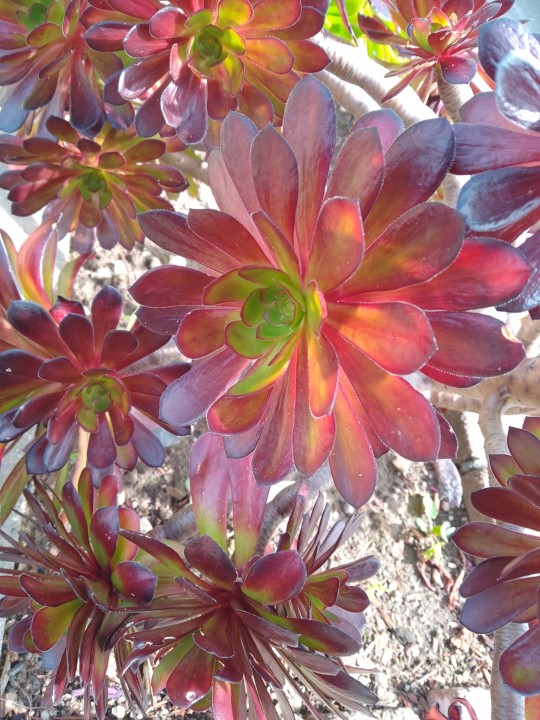
2 notes
·
View notes
Text
youtube
https://youtu.be/ZKaAINWHHBI
Movies depicting the life of a nomadic family in the heart of the Iranian mountains, showcasing their struggle for survival and resilience. Please follow and support our channel. I truly need your help
#nomadic#lifestyle#youtube#rural#villagelife#naturelife#nomadiclife#rural gothic#re8 village#nomadlife#acnh villagers#urban life#mountain#mountains
3 notes
·
View notes
Text
Hi all, recently i visited in nairobi and my nairobi trip was so amazing and memorable, Embracing Nairobi was a sensory delight, where vibrant markets echoed with the rhythm of city life. From the captivating wildlife at Nairobi National Park to the eclectic Maasai Market, every moment immersed me in the city's rich culture. Nairobi's warmth and diversity made my travel experience truly unforgettable.
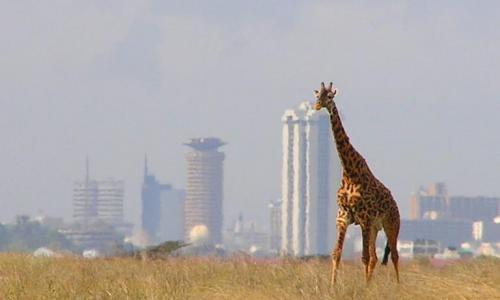
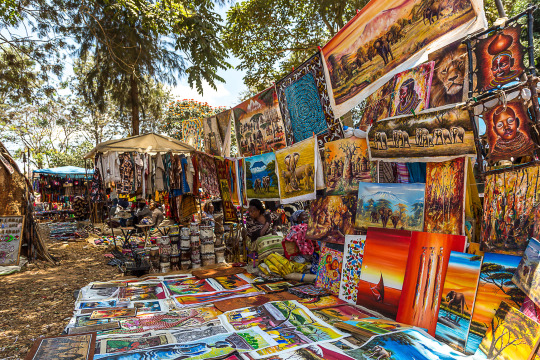

#Wanderlust#TravelGoals#AdventureTime#ExploreMore#TravelPhotography#BucketList#TravelAddict#RoamThePlanet#Jetsetter#DiscoverEarth#NomadLife#TravelDiaries#GoExplore#EscapeTheOrdinary#AdventureAwaits#TravelInspiration#ExploreDreamDiscover#TravelVibes#Wanderer#ExploreEverything
3 notes
·
View notes